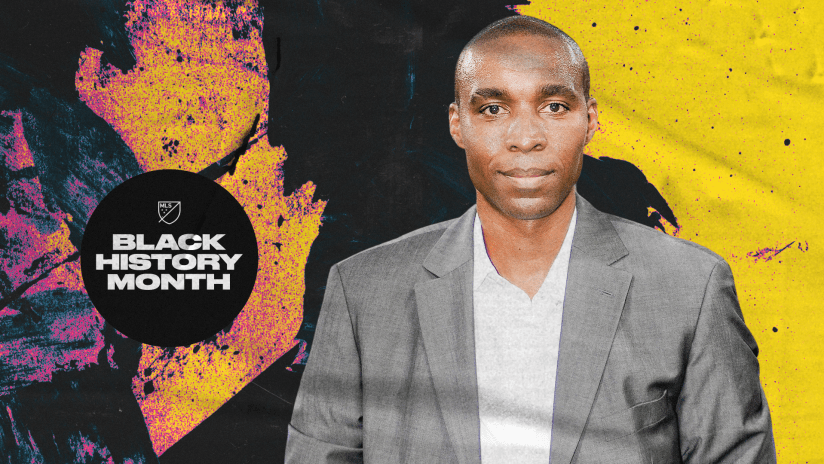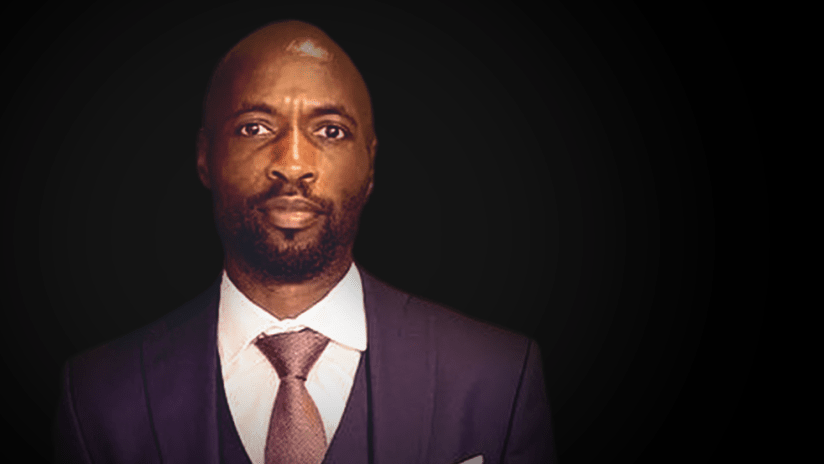About a year ago, Dr. Jermaine Scott, a professor of African American, African Diaspora, and Sports History at Florida Atlantic University and an Inter Miami CF fan, began researching the experience of Black supporters’ groups in the American soccer community.
Conversations around the country led to conversations within the Inter Miami community. And those conversations led to this month’s official introduction of Black Herons United, Inter Miami’s first Black SG.
“They all kind of have had a similar experience within their own clubs. That there was an underrepresentation of Black supporters not only throughout the club, but throughout the supporters’ groups themselves. And so they all kind of took it amongst themselves to create their own Black supporter groups and they all experienced really great success A lot of support from the other supporter groups,” Scott said. “This is kind of the experience that we were having as well. We felt that South Florida's Black communities were rather underrepresented and we felt that Black Herons could kind of fill that void.”
Last year, Scott started reaching out to Black Inter Miami fans on Twitter with the idea to create a SG. The idea offered a chance to carve out a space of connection within the club. It resonated. The group is small for now, but members like Alex Windley, a journalist who covers the team for Five Reasons Sports and The Heron Outlet, are excited about the chance to engage with a part of the community in south Florida that sometimes gets overlooked.
“Miami is 17% Black/African-American. So that's a pretty significant chunk and that needs to be represented as well,” Windley said. “With Black Herons, that's basically what this outlet is. It's sort of a rallying cry to other Black fans. They can come and join and they'll have a space to go out and address whatever concerns they have and just kind of galvanize the Black community here in south Florida.”
Black Herons has created a space for the fans that are already coming to games. Now their plan is to reach out to those who aren’t. Scott describes Miami as a city influenced by the African diaspora with strong ties to Caribbean and African countries, including countries and cultures that oftentimes have a passionate connection to soccer. The SG wants to offer a chance for those connected to those countries and cultures to see themselves represented within Inter Miami.
There are hopes of going into Miami neighborhoods like Little Haiti and Liberty City and finding ways to show its residents that there is a place for them within Miami’s soccer ecosystem. That could mean hosting watch parties at Black-owned restaurants in the area or maybe even hosting an event with an Inter Miami player or two.
“I grew up playing soccer. I always felt like I was one of one, two or three Black people on the team. I always felt alone or just underrepresented. I would watch the national team and I, again, would only see one or two or three Black players on the pitch,” Scott said. “So bringing Black Inter Miami players to these communities will show the kids ‘Oh, okay. There are Black players right here on my local team.’ That’s more reason to support the team which of course is a mutual benefit for the club and the supporters.”
Black Herons United made their official MLS debut last Saturday when Inter Miami welcomed Chicago Fire FC to DRV PNK Stadium. But even without ever having attended a game, its members said the group was welcomed with open arms by fellow fans, players and the team.
Warm welcomes are just one part of the equation though. The group and members like AD Bradley are hoping that through elevating their own voices and the voices of others that they’ll be able to shape the growing community around one of the league’s newest club for the better.
“We were looking for more uplifting of Black voices and highlighting the Black community in Miami just a little bit more,” Bradley said. “Because I know that the club is very big on highlighting its community and it empowers its community to show up and be itself and bring its background and culture to the game because that's what makes Miami the city it is We're all, we're all so lively because we bring our cultures together. But I do feel that there could be a lot more direct effort toward uplifting the Black voices that are also in the stadium.”














